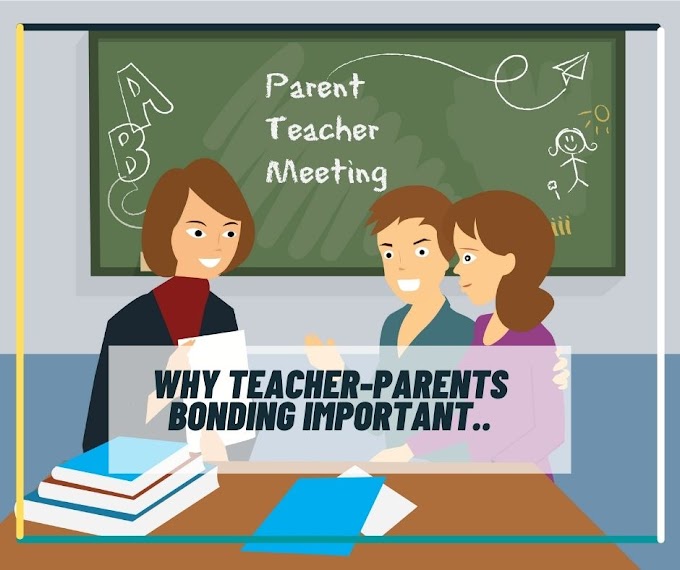"Habit," according to the Oxford dictionary, means something that you often do, sometimes without even knowing that you do it so frequently. To make the "Reading Habit" in young children, parents started reading to them even before they learned to read and roll in the hay daily to make the reading habit. Just like the maternal language, the kid must hear the language (second) to know it. And thru illustrated books, they're ready to comprehend the text.
Often busy parents say they can't find the time to read alongside their child, not realizing that reading together might be the most exact time spent on the brink of the kid and gift their child the "Reading Habit." given below are some ways by the best school in Jodhpur, Vidhyashram International School to develop good reading habits in kids.
Exciting Ways To Develop Good Reading Habits In Children:
- Read Aloud may be a must. It's like hearing a replacement language through stories (like hearing the maternal language and learning the language), and therefore, the illustrations help to know the text and vocable.
- Fix a time to read. To make an honest habit, things should be done at a specific time. Just like the child brushes their teeth on waking and before sleeping, they know that now's the fixed time to read and that they can't skip it. Like they can't skip brushing. Reading before bedtime may be a blast, and this will develop an honest reading habit.
- Children who don't have the reading habit can read before self-study time and appearance at it as language enrichment time. If children read regularly, their vocabulary, syntax, imagination (needed for creative writing), and writing skills improve. They are ready to easily understand other subjects (history, science, math, etc.). The maths problems will appear as Math story sums. These are the advantages of excellent reading habits in children.
- Create a comfortable place to read. It becomes a particular place, and that they associate it with reading. Positive vibes are created and received by the kid to read.
- Read with a pet or soft toy. Reading with a non-judgmental companion gives the child the confidence they need and makes them feel important.
- Make them read books with a friend; it may be a book-themed party. This shows that you value books and reading. It becomes a positive, enjoyable, and intellectual movement with friends. Your child can share their favorite book characters with friends, and books are often brought alive at a birthday celebration. Gift books to kids on Birthdays and other occasions.
- Use Printed books and avoid gadgets. Always start with printed books instead of digital ones. Once they advance, they might explore other mediums. Without the distractions of television and pads, children will automatically want to read to pass the time.
- Be a task model; read ahead of them. Show your child that reading is vital to you.
- Listen to your kid read and show interest in what they like reading. Share stories read.
- Read about their favorite book's author. What motivated the author to start writing? Author Biography inspires a kid to read and write too.
- Start with humorous stories; who doesn't sort of a good laugh? Once children enjoy a joke, they will read other genres (fables, fairytales, folktales, etc.)
- Read nonfiction books. They realize that reading gives them information and increases their knowledge. They're going to notice how the layout and purpose differ. Discovery new places through books.
- Subscribe to a magazine. Children anticipate that monthly. It gives them personal belongingness to gain current information, read short stories, solve puzzles, etc.
- Enact the story, become the characters. You and your child (and their friends) can bring the book alive. Alternate in reading a page; modulate your voices.
- Play with stories: Change the story's ending, structure stories, and interchange characters of two levels. Show your child that reading doesn't end with a book; they will be the author too.
- Comprehension skills: Ask questions after/between the stories and retell the story, take a quiz or create a quiz. It gives you thought if your child understood what they read and even motivates them to concentrate on what they read.
- Use the vocabulary, imagination, and knowledge into your lifestyle. This may reinforce the thought that the point spent reading is beneficial.
- Keep a reading bookmark and note the books which the kid read. This acts as a comprehension tool and how to trace books read. The kid is often given a target and rewarded.
- Don't force a reluctant reader, and don't ever hand over. Read to them to realize what they're missing, and successively don't miss out on reading. Audiobooks accompanying a book are helpful.
- If a toddler is reluctant to read, try making children read fiction or nonfiction connected to their favorite topic/subject.
- Allow them to pick their books; they're more likely to read them. They feel responsible for finishing it since they found it interesting.
- Visit book launches and book stores; get an autographed books. Show kids that books are as important as toys, clothes, and food. Reading is food for the mind. Visiting book stores often develops good reading habits in kids.
- Share your books with cousins & friends or Donate books. Books are so valuable that they only can't be thrown away they ought to be passed on since they're a treasure of data.
- Create a reading challenge for your child. 2 books every week might be the challenge. A gift should be assigned.
- Make reading a fun-filled and relaxing habit.
In 2017, Gates stated that reading is "absolutely" essential to success in the' TIME' magazine. The reading habit should be cultivated and becomes an asset valued in adulthood because it provides a tool to achieve continuous knowledge. A book becomes a companion wherein an individual also reads for pleasure and relaxation.







0 Comments